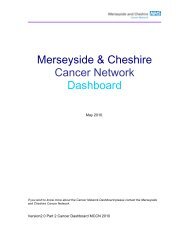Cancer Research UK Annual Review 2011/12
Cancer Research UK Annual Review 2011/12
Cancer Research UK Annual Review 2011/12
Create successful ePaper yourself
Turn your PDF publications into a flip-book with our unique Google optimized e-Paper software.
<strong>Annual</strong> <strong>Review</strong> <strong>2011</strong>/<strong>12</strong> | 23<br />
We hope that, in the future, all<br />
women with a family history of<br />
ovarian cancer will be tested for<br />
this fault and offered advice about<br />
screening and treatment.<br />
Our scientists are also investigating<br />
ways to find the best treatment for<br />
each woman, based on the genetic<br />
make-up of their tumour. Early<br />
results suggested that women with<br />
a faulty version of RAD51D could<br />
benefit from new drugs called PARP<br />
inhibitors, offering hope of more<br />
tailored treatment in the future.<br />
‘I can’t praise <strong>Cancer</strong> <strong>Research</strong> <strong>UK</strong>’s<br />
work highly enough,’ says Della.<br />
‘My mum also had ovarian cancer.<br />
This research means that my sisters<br />
and daughter could be tested to<br />
find out if they’ve inherited a higher<br />
risk of cancer too. I get comfort<br />
from knowing there’s a greater<br />
chance the disease will be diagnosed<br />
sooner if people know they carry<br />
the faulty gene.’<br />
We’ve played a vital role in transforming treatment for ovarian cancer<br />
and improving survival<br />
1980s 1990s 2000s<br />
Our researchers<br />
discovered a<br />
chemotherapy drug,<br />
carboplatin, which<br />
is now the ‘gold<br />
standard’ for treating<br />
ovarian cancer.<br />
cancerresearchuk.org<br />
Our scientists showed<br />
the importance of the<br />
gene BRCA1 in breast<br />
and ovarian cancer and<br />
went on to discover the<br />
BRCA2 gene. This means<br />
women with a family<br />
history of breast cancer<br />
or ovarian cancer can be<br />
tested for faults in these<br />
genes so doctors can<br />
offer them choices about<br />
prevention and screening.<br />
Our researchers identified<br />
symptoms of ovarian<br />
cancer, such as bloating,<br />
that persist over time –<br />
helping to diagnose more<br />
women earlier when their<br />
cancer is easier to treat.<br />
Our scientists also showed<br />
that the contraceptive pill<br />
can protect women from<br />
ovarian cancer, reducing<br />
the risk by up to half.


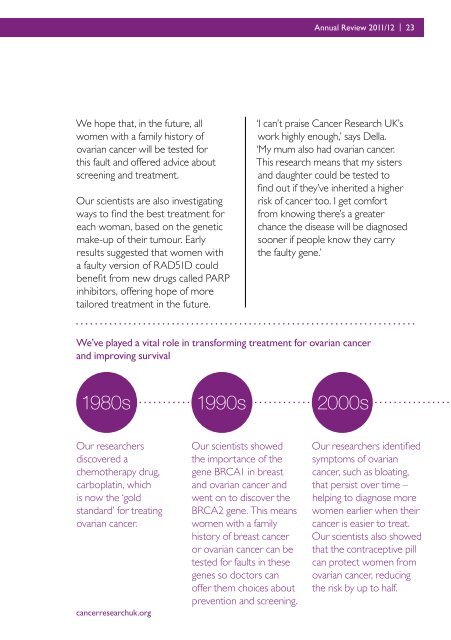

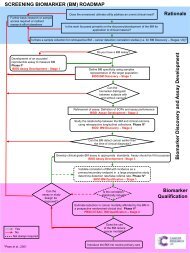


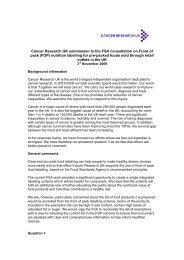

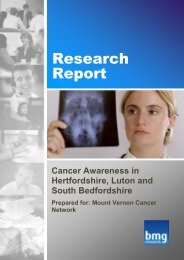
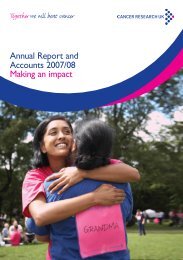


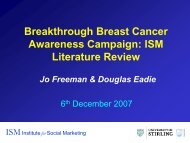
![[PDF] Cancer Research UK's strategy 2009 - 2014](https://img.yumpu.com/29239422/1/184x260/pdf-cancer-research-uks-strategy-2009-2014.jpg?quality=85)

